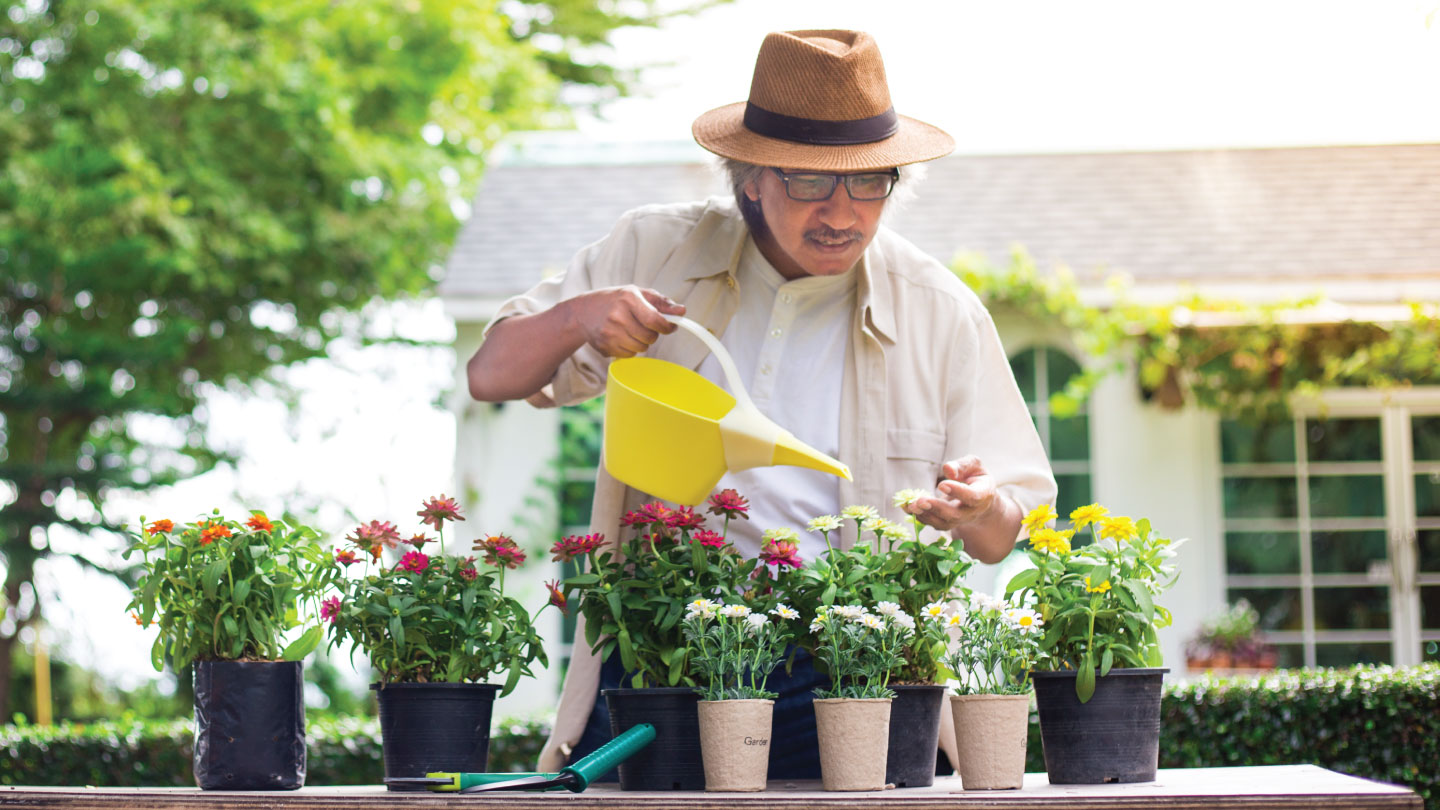Mental Health
The Blueprint For Ageing With Joy
Here’s how to flourish in retirement, with insights from research and tips from a psychiatrist.

Retirement is often imagined as the long-awaited reward for years of work, but for many, it can also trigger feelings of emptiness and uncertainty. Research shows that late adulthood can be a time of renewal and growth: A 2021 Lancet Public Health study found that people over 60 with strong social, psychological, and physical well-being reported higher life satisfaction than younger adults.
As Dr Sandeep Vohra, Senior Consultant Psychiatrist at Indraprastha Apollo Hospitals, New Delhi, and Founder at NWNT AI (No Worry No Tension: An online platform for therapy and counselling), explains: “Retirement is often seen as a finish line, but in reality, it can be the beginning of a new and fulfilling chapter. The key lies in consciously redefining who you are beyond your job title.”
So what does thriving late in life look like? Here are seven strategies, backed by positive psychology.
Related Story: This Just In: Mushrooms Can Help Fight Depression, Ageing and More
7 Ways to Thrive Beyond Midlife:
- Redefine your identity beyond work
Psychologists note that loss of professional identity is one of the biggest emotional challenges of retirement. According to Dr. Vohra, this often fuels late-life crises: “Many people experience anxiety because their sense of self has been tied to their careers for decades. Redefining yourself as a mentor, learner, or creator helps fill that gap.”
This aligns with findings from a 2009 JAMA study, which found that having a sense of purpose is associated with reduced mortality among older adults living in the community. Specifically, those with a sense of purpose have a 43 per cent lower risk of death. Purpose-driven roles, whether they are creative, social, or community-oriented, can offer structure and meaning beyond just work.
- Cultivate meaning and passion
Activities that spark intrinsic satisfaction fuel happiness and resilience. “Lifelong learning, whether painting, gardening, or learning a new language, stimulates the brain and keeps older adults engaged in a rapidly changing world,” Dr. Vohra notes.
The Rush Memory and Ageing Project (a long-term clinical-pathologic study that began in 1997) confirmed that mentally stimulating activities reduce the risk of Alzheimer’s. Staying curious and engaged is not just enjoyable, it’s protective too.
Related Story: 10 Warning Signs of Alzheimer’s Disease
- Strengthen social connections
Loneliness is a serious health risk in later life. A 2010, PLOS study found that social isolation can be as harmful as smoking 15 cigarettes a day!
Dr. Vohra emphasises: “Engaging with friends, joining community groups, and building intergenerational bonds such as mentoring younger professionals or spending time with grandchildren fosters joy and a sense of legacy.” These connections buffer against depression and protect long-term cognitive health.
- Prioritise physical and mental health
Wellness in older age depends on both body and mind. Exercise improves cognitive function (2004, JAMA Study), while mindfulness-based therapies reduce stress and enhance resilience (2014, JAMA Internal Medicine Study).
“Physical and mental health remain the bedrock of thriving,” says Dr. Vohra. “Seeking therapy or joining support groups should never be seen as a weakness, as it equips people with coping strategies for life transitions.”
Related Story: Confirmed: Stress Does Cause Premature Immune Ageing
- Adopt a growth mindset
Attitude shapes ageing. The Harvard Study of Adult Development (2012) showed that optimism and adaptability predict happiness more strongly than wealth or physical health.
“Ageing inevitably brings change,” says Dr Vohra, “but when seen through the lens of possibility rather than limitation, it becomes liberating.” Reframing challenges as opportunities is a hallmark of resilience.
- Give back to create a legacy
Contribution creates lasting fulfilment. Volunteering, mentoring, or writing memoirs transforms experience into impact. Dr Vohra notes: “For many, this is the time to give back. Legacy projects ensure that life’s lessons benefit others and give a sense of continuity.”
Research from the Journal of Gerontology (2003) found that volunteering in older adulthood is linked with lower depression and higher life satisfaction.
- Live by the three Cs: connection, contribution, curiosity
Dr Vohra distils his philosophy into three principles: “Remaining connected to people, continuing to contribute meaningfully, and staying curious about new experiences are the keys to flourishing in retirement.”
Thriving late in life isn’t about resisting ageing, it’s about embracing it with purpose, passion, and openness. The evidence is clear: strong social ties, continuous learning, physical and mental wellness, and a flexible mindset can transform retirement from a feared transition into a time of renewal.
As Dr Vohra reminds us: “Retirement is not the end. It’s a powerful opportunity to live with joy, purpose, and meaning.”
At UR.Life Studio, we believe every stage of life is an opportunity to thrive. Our Lifestyle Management and Therapeutic Programmes (LMTP) are designed to support your health, recovery, and long-term vitality. Whether you are looking to manage a condition, rebuild strength, or simply live with more energy and balance.
Your journey to wellness doesn’t stop at retirement; it can truly begin here. Explore how UR Life Studio can help you live healthier, stronger, and more fulfilled. Book your appointment here.
EXPLORE MORE
You train hard, eat clean, and tick every fitness box, yet your mirror feels like an enemy. Dr Sandeep Vohra explains why body image struggles often linger and offers ways to shift your perspective.
The way we travel to work shapes our mood, stress response, and even long-term brain health. Explore how daily commute stress impacts your mental health.
The need for solitude and emotional regulation has made people adopt a quirky yet telling Gen Z self-care ritual, known as Bathroom Camping!
Society often calls them “too emotional.” Dr. Sandeep Vohra explains that high sensitivity is a biological trait, and with it can come both remarkable strengths and mental-health vulnerabilities.









.jpg)


